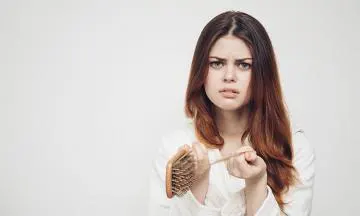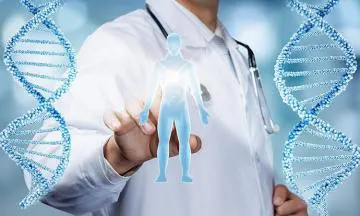

Dandruff vs. Dry Scalp: Know the difference between dry scalp and dandruff
Do you have dandruff or is your scalp simply dry? Most of you have probably debated about this, and despite how similar these ailments appear there are significant differences between them. It is critical to distinguish between the two since the best approach to deal with each situation differs. Continue reading to know the difference between dry scalp and dandruff.
What exactly is dandruff?
Dandruff develops when your scalp becomes dry and irritated. You may notice small white flakes of your scalp in your hair or on your clothing if you have dandruff. Using a dandruff shampoo or scalp treatment can help in the management of skin flaking.
Dandruff is a common and mild ailment. It is not something that can be passed down from one person to the next. If you have darker hair, you may notice the flakes more than persons with lighter hair. The color of the flakes ranges from pale white to yellow.
What exactly is a dry scalp?
If your scalp is frequently itchy, you may have a dry scalp. Dandruff, discomfort, and hair loss can result from constant scratching. A dry scalp can be caused by a variety of factors. The most common causes are changes in weather and harsh chemicals in your hair care products. A dry scalp occurs when your scalp does not retain sufficient moisture. Oil is required to keep your scalp hydrated. You may be prone to a dry scalp if you have dry skin.

What are the symptoms of dandruff vs. dry scalp?
Dandruff and dry scalp are sometimes confused, and their symptoms can be extremely similar.
Symptoms of Dandruff
Dandruff occurs when dead cells in your hair cling together due to surface dirt and oil.
- Dead skin flakes
- Itching
- Irritation
- Dryness
Symptoms of dry scalp
If you have a dry scalp, you may notice some of the following symptoms:
- Flaking skin
- Itching
- Redness
Want to know your hair loss score? Take the Hair evaluation test: Button
Causes of dandruff vs. dry scalp
Although dandruff and dry scalp look similar on the scalp, the causes of each condition are distinct.
Dandruff: The medical word for dandruff is seborrheic dermatitis. The precise causation of this condition is unknown; however, it is thought to be caused by a combination of circumstances, including:
- Overproduction of sebum in hair follicles and oil glands
- The presence of a yeast called Malassezia on the skin.
- The presence of certain microorganisms on the skin
- Stress
- Cold or dry winter conditions
- Specific hair care products
Dry Scalp: While dry scalp has some of the same causes as dandruff, it also has some distinct causes as well. The same reasons that produce dry skin in other parts of the body can cause dry scalp, including:
- Prescription medicines
- A dry, low-humidity atmosphere, whether in summer or winter
- Skin conditions like psoriasis and eczema
- Health issues such as diabetes or kidney disease
- Harsh soap or shampoo
- Long hot showers or baths
- Exposure to heating or air conditioning
Also Read: Dandruff vs. Dry Scalp – The Difference and Causes
Self-help tips to prevent dandruff or dry scalp
- Shield your hair from the sun and pollution. While traveling, keep your hair covered.
- Apply coconut oil or olive oil to the scalp to release scales before washing hair with a gentle natural shampoo.
- Wash your scalp regularly to keep it clean. Every other day, use a natural dandruff cleansing shampoo.
- To relieve stress, use relaxation techniques such as yoga and meditation.
Also Read: 7 Best Natural Dry Scalp Treatments That Actually Work
Homeopathic treatment
According to a study published on Researchgate, homeopathic medicine treats seborrheic dermatitis comprehensively. Homeopathic treatments are incredibly effective at treating dandruff with no side effects.
Homeopathy tackles the underlying causes of dandruff or dry scalps, such as thyroid disease or mental stress, and thereby prevents hair loss caused by dandruff or a dry scalp.
Why Dr Batra's®?
It can be humiliating to have dry, flaky skin or itching on your scalp, but it's crucial to recognize that dandruff and dry scalp are not caused by poor hygiene and, in most cases, can be easily managed with homeopathy.
It is critical to distinguish between the two conditions to discover the most effective treatment. A homeopathic dermatologist will be able to determine if you have dry scalp or dandruff and direct you to the best treatment option.
Dr Batra's® Healthcare has successfully treated over 1.4 million individuals for a variety of ailments, including dandruff and dry scalp. Our team of homeopathic specialists at Dr Batra's® develops a personalized treatment plan based on the medical science of homeopathy. We provide homeopathic remedies as well as lifestyle, dandruff control, and hair care advice for the patient's overall wellbeing.




